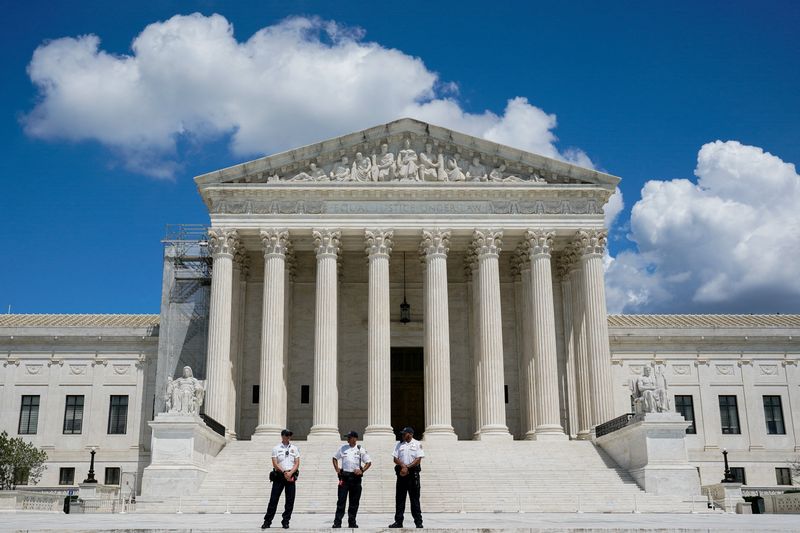By Daniel Wiessner
(Reuters) - The U.S. Supreme Court on Friday agreed to decide whether workers can bring discrimination lawsuits based on unwanted workplace transfers that were allegedly motivated by bias, an issue that can make or break many cases.
The justices took up a case involving St. Louis police officer Jatonya Muldrow, who is seeking to revive claims that she was transferred to an undesirable post to make way for a male officer. Muldrow appealed a lower court's ruling that the conduct by the police department could not form the basis of a discrimination lawsuit.
The Supreme Court will hear the case in its next term, which begins in October.
Many of the thousands of discrimination lawsuits filed each year involve workers who allege they were transferred for discriminatory reasons, including as a way to force them to quit their jobs.
President Joe Biden's administration in May urged the court to take up the issue, saying rulings by lower courts dismissing such litigation misinterpreted federal anti-discrimination laws that only apply to "adverse employment actions" driven by bias.
The Supreme Court on Friday took no action on a separate case questioning whether paid suspensions count as adverse employment actions under Title VII of the Civil Rights Act of 1964.

The lower courts said that to state a claim under Title VII, workers must show that they suffered a material harm or significant change in their employment status such as a firing, demotion or decrease in pay.
Muldrow has said she was transferred out of an intelligence unit by a new supervisor who wanted a man in the position. The department has said officers are routinely transferred and the plaintiff's supervisor transferred more than 20 officers when he took over the unit.